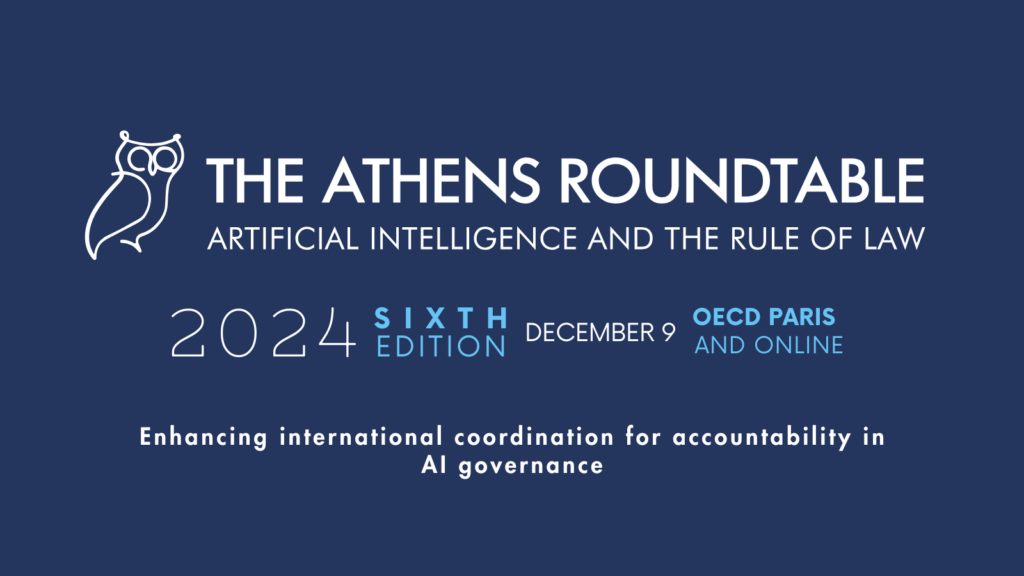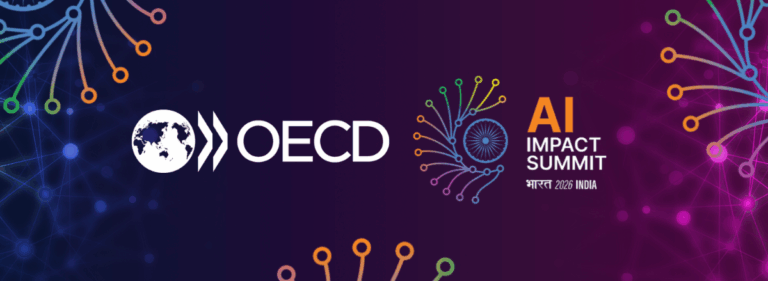A collective effort for accountability in AI governance: The Sixth Edition of the Athens Roundtable on AI and the Rule of Law

As the capabilities of advanced artificial intelligence rapidly increase and people worldwide feel its impact, they are also starting to realise they need rules to guide AI’s development and deployment. Public polling around the world presents a strong case for efforts to govern AI: more than half of people surveyed in East Africa say it will mostly harm people in their country over the next 20 years, around 68% of Europeans want government restrictions on AI to protect jobs, and 67% of Americans who are familiar with chatbots say “they are more concerned that the government will not go far enough in regulating their use than that it will go too far.”
In recent years, governments, multilateral organisations, and tech companies have started to respond to that demand with promising efforts to define and implement new standards, practices, and policies to reduce the harms from AI. Yet, on a global scale, we are far from having an effective governance regime that ensures all AI actors are held accountable for developing the trustworthy systems the public wants and deserves.
To safeguard the rule of law, democratic values, and global well-being, we need robust, internationally coordinated accountability mechanisms. These include global standards for AI risk management, an interoperable ecosystem to evaluate AI systems, and transparent and accessible information flows.
Cross-sectoral dialogue on these needs is a step towards meaningful collective governance. Accountability will take centre stage at the Sixth Edition of The Athens Roundtable on Artificial Intelligence and the Rule of Law. On December 9, the Roundtable will bring legal practitioners, developers, policymakers, and civil society representatives from around the world to the OECD headquarters in Paris and online.
RELATED >> Safer together: How governments can enhance the AI Safety Institute Network’s role in global AI governance
Enhancing international coordination for accountability in AI governance
For our Sixth Edition, the main focus will be to rethink and refine incentive structures to embed accountability across the AI lifecycle, foster collaboration, and strengthen innovation. This year, our objectives are to:
- Strengthen coordination efforts in the AI governance landscape, particularly through the lens of accountability: The Roundtable will examine how leading institutions—such as the OECD, UN, G7, G20, UNESCO, AI Safety Institutes (AISIs), the European AI Office, Council of Europe, the African Union and France’s AI Action Summit—are implementing and promoting accountability mechanisms within the AI governance ecosystem. It will identify and address challenges in current efforts and aim to promote enhanced collaboration, continuity, and coordination across these initiatives to address these gaps.
- Propose concrete objectives and deliverables for France’s AI Action Summit: As an official partner event leading to the AI Action Summit in February 2025, The Roundtable will include the presentation of results from a global consultation launched by The Future Society, AI & Society Institute, CNNum, Make.org, and the Tech and Global Affairs Innovation Hub of Sciences Po. These findings will inform and advance the Summit’s agenda.
- Facilitate collaboration between AI governance civil society organisations and advocate for their inclusion in global AI governance: The Roundtable will encourage a process for regular, structured dialogue among a diverse set of CSOs engaged in AI governance, fostering stronger cooperation and unity in their efforts to hold AI actors accountable for a spectrum of harms.
This year, the full day will occur in arAn open roundtable format to foster catalytic discussions around questions such as: How can enhancing accountability among AI actors protect the rule of law globally? How can global actors better collaborate and coordinate to reach their desired goals faster and more effectivelywith more impact? What are the critical gaps, including coordination challenges, in establishing an accountable AI governance regime? How do we build stronger accountability across AI actors globally? What is the role of different stakeholder groups, including civil society, in doing so?
The idea that a constructive approach to AI governance requires the engagement of a wide spectrum of stakeholders is always at the heart of The Athens Roundtable. That’s why we are inspired by the idea that accountability begins with each and every one of us. We have to work together to prioritise people over profits in the development and deployment of AI and to ensure everyone does their part to work towards trustworthy AI.
To achieve this, we need diverse AI actors at the Roundtable. We look forward to a productive exchange with participants, including Minister of ICT and Innovation in the Government of Rwanda Paula Ingabire, Hellenic Minister of Digital Governance Dimitris Papastergiou, Director of the European AI Office Lucilla Sioli, Anthropic Co-Founder and Head of Policy Jack Clark, UN AI Advisory Body Co-Chair Carme Artigas, Special Envoy of the French President to the AI Action Summit Anne Bouverot, and UC Berkeley Professor of Computer Science Stuart Russell.
The Future Society organises the Roundtable in partnership with the OECD, UNESCO, France’s AI Action Summit, the AI & Society Institute, the French Digital Council (CNNum), Make.org, and the Tech and Global Affairs Innovation Hub of Sciences Po, with support from Arnold & Porter and Fathom. It is held under the patronage of H.E. the President of the Hellenic Republic, Ms. Katerina Sakellaropoulou.
The Future Society has coordinated The Athens Roundtable since 2019 when the topic of AI governance was less prevalent in when the topic of AI governance was niche and AI policies far from the spotlight at multilateral forums such as the G7 and G20. In 2024, many of the theoretical scenarios we imagined at our first convening in Athens have become a reality. The need has become urgent–it’s time to develop actionable strategies for collective global accountability in AI governance.

Join us on December 9, 2024
We invite our global community to join an interactive livestream of the full day of roundtable discussions. Virtual audience members can will be able to participate through chat and real-time polls, so our discussions can be enriched by broad perspectives.
Learn more and register here: https://www.aiathens.org/dialogue/sixth-edition


































